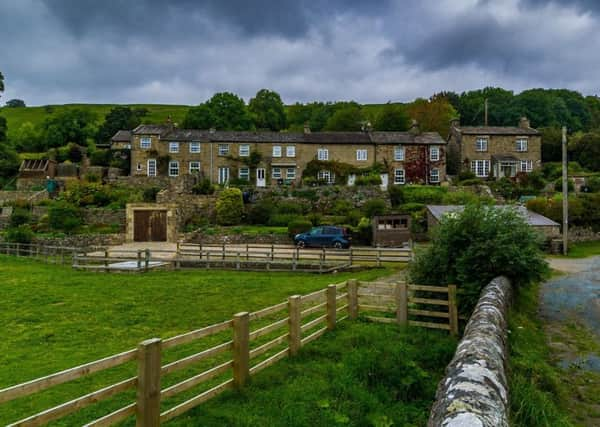Dorothy Fairburn: Remember '˜it is farmers, and not Greenpeace, that maintain hedges' as Britain prepares for Brexit


Despite the Government’s pledge to keep farming support at the current level of around £3bn per year until the end of this Parliament, there have been no further commitments beyond 2022.
Just after this year’s Great Yorkshire Show, the CLA launched its Land Management Contract as a future framework for replacing the EU’s Basic Payment Scheme, giving farmers and landowners a choice to deliver ‘public goods’ in return for public money.
Advertisement
Hide AdAdvertisement
Hide AdSuch payments are necessary because there is vital work to be done across our countryside to manage soils and preserve the productive capacity of the land, to plant the trees we need, to clean and store water, to support the farming practices that make up our iconic landscapes or to make it possible for people to enjoy our beautiful natural spaces. These responsibilities bring costs and burdens that other businesses do not have to bear.
The CLA showed how the contract would form one important part of an overarching ‘Food, Farming and Environmental Policy’ which is more transparent, easier to administer and demonstrates value for money to the taxpayer. Indeed, a YouGov poll carried out over the summer revealed that more than eight out of 10 people (84 per cent) think the Government should spend money on preserving and managing the countryside, with 61 per cent saying that the current spend of £3bn per year is either the right amount of public money to spend on it (40 per cent) or too little (21 per cent).
Along similar lines, Government talk has centred on how future monies should be spent, but not committing to the amount of money to support farmers after the run of the current parliament.
This is even starting to worry some in the green lobby, especially since there is growing recognition of the contribution farmers and landowners make to the shaping and conservation of our treasured environment and its landscape. Indeed, productive and profitable farming businesses are vital to an environmentally sustainable future – providing a perpetual public good. After all, it is farmers, and not Greenpeace, that maintain hedges.
Advertisement
Hide AdAdvertisement
Hide AdEntering phase two of the Brexit negotiations, securing vital trade deals within the EU will be vital for our agricultural sector. However the CLA, and other sector- based organisations, will seek to make sure that agriculture and rural communities are not written off as collateral damage in Government negotiations with the EU. Chasing promising trade deals – and there will be opportunities – outside of the EU carries risk, and any mad rush to capitalise on free trade agreements could be detrimental to the UK’s agri-food sector. Anyone remember chlorinated chicken and hormonal beef imports?
Of increasing importance for the industry is to advocate a level playing field in trade terms outside the complexities of tariffs, especially within the context of competitor markets having more government support, along with lower food and animal welfare standards. Britain’s high food standards and animal welfare is a distinct advantage in the global market place, but it also needs local support from consumers and politicians alike.
Business Secretary Greg Clark recently launched the Government’s ambitious Industrial Strategy, with references to the importance of ‘efficient and sustainable’ agriculture. The strategy rightly identifies that technology, coupled with better use of data, will be the key.
However this commitment to investment and policy support has to be matched by a commitment to securing the best possible Brexit trade deal and establishing a successor to the existing farming support under the Common Agricultural Policy.
Advertisement
Hide AdAdvertisement
Hide AdAgainst a volatile backdrop of sustained financial pressure and uncertainty, the CLA will continue working hard to ensure farmers and landowners have the security, certainty and support they need to make investments in their land and business. Ultimately, it is up to the Government to commit to funding in support of farming and our environment.